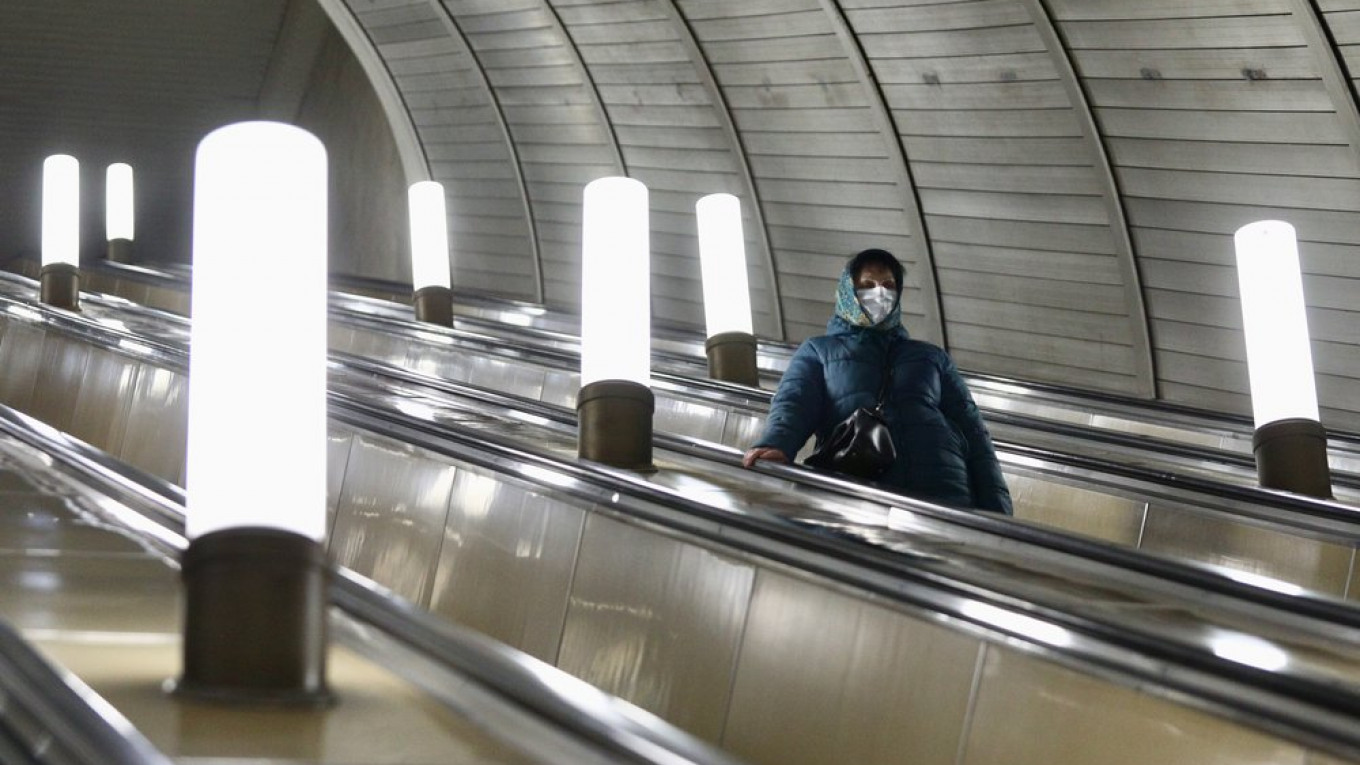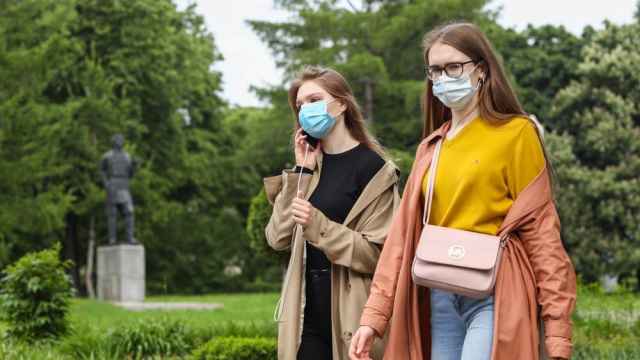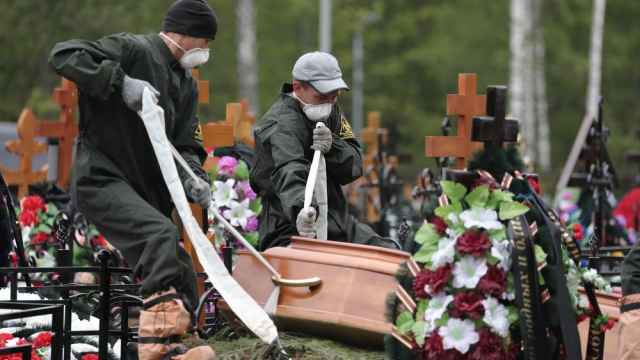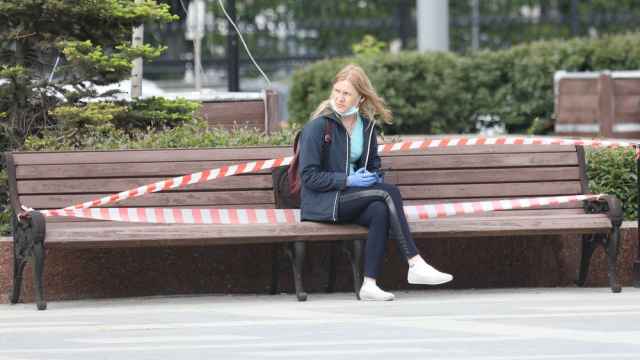Up to 117,000 people might have died from the coronavirus by fall had Moscow not introduced its partial lockdown, according to a study cited by the Meduza news website Monday.
The Russian capital enacted an indefinite citywide quarantine Monday to slow the spread of the pandemic that has infected more than 1,613 Muscovites out of 2,337 nationwide cases. More than 40 other Russian regions have adopted similar measures at the prime minister’s recommendation.
Moscow’s quarantine could result in 250 eventual deaths from coronavirus instead of the 117,000 deaths projected by September without any measures, according to Moscow State University Associate Professor Mikhail Tamm’s model.
Critical cases would not exceed 80 people at any given time instead of the 48,500 that would be seen in a worst-case scenario, with only 2,500 intensive care unit beds currently available.
“If these stringent policies had been introduced later, then both the eventual number of fatalities and the number of people needing critical care would have been an order of magnitude larger,” the study said.
Tamm’s study, a mathematical modeling analysis that predicts potential outcomes, is based on a University of Illinois model that prompted the U.S. state to issue a stay-at-home order two weeks ago.
The researcher called Moscow’s partial lockdown — which limits movements to grocery store and pharmacy trips, dog walks, taking out the garbage and seeking care for medical or other emergencies and will be enforced through “smart monitoring” — “strongly preferable to a delayed lockdown.”
“It lowers the burden on the healthcare system, leads to 10 times fewer deaths and significantly shortens the epidemic’s duration. Consequently, the decision to impose a preventive lockdown on Moscow seems perfectly reasonable,” he said.
A Message from The Moscow Times:
Dear readers,
We are facing unprecedented challenges. Russia's Prosecutor General's Office has designated The Moscow Times as an "undesirable" organization, criminalizing our work and putting our staff at risk of prosecution. This follows our earlier unjust labeling as a "foreign agent."
These actions are direct attempts to silence independent journalism in Russia. The authorities claim our work "discredits the decisions of the Russian leadership." We see things differently: we strive to provide accurate, unbiased reporting on Russia.
We, the journalists of The Moscow Times, refuse to be silenced. But to continue our work, we need your help.
Your support, no matter how small, makes a world of difference. If you can, please support us monthly starting from just $2. It's quick to set up, and every contribution makes a significant impact.
By supporting The Moscow Times, you're defending open, independent journalism in the face of repression. Thank you for standing with us.
Remind me later.






